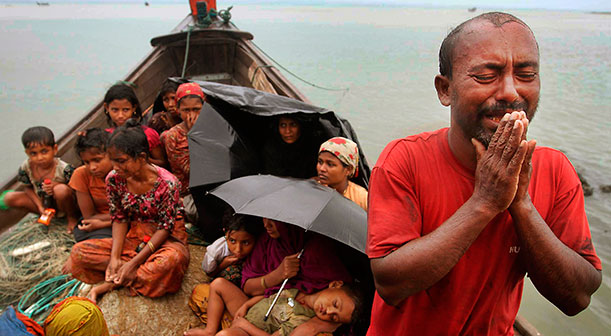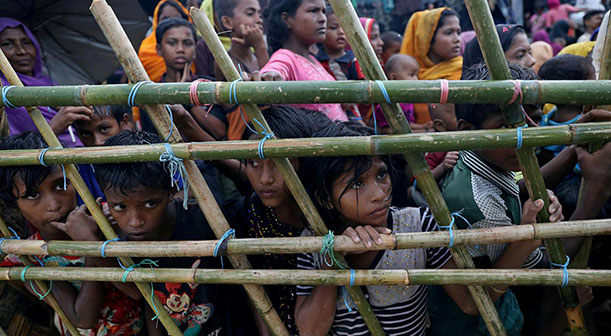Value for Money Principles

Global Bank’s Value for Money Principal
Global Bank clients face a myriad of complex and interrelated challenges in the new global economy, calling for innovative approaches to development. There is significant heterogeneity among developing countries, with uneven development gains across countries. While poverty rates have declined, extreme poverty remains concentrated in challenging environments. Climate change and fragility, conflict, and violence (FCV) threaten progress towards the Sustainable Development Goals (SDGs) and, if unchecked, could push more people into extreme poverty in both developing and developed countries globally:
- Climate change-related shocks could result in more than 100 million additional people living in poverty by 2030.
- The number of extreme poor, living in Fragile and Conflict-affected Situations (FCS) – currently accounting for around 20 percent of the world’s extreme poor and 50 percent of the population in Fragile and Conflict-affected Situations – is projected to double by 2030 in the least developed countries (LDCs).
- In the absence of job opportunities, demographic pressures – particularly in countries facing significant youth bulges – over the next decade will amplify the number of unemployed in the least developed countries.
- In addition to the geopolitical pressures leading to the current refugee crisis and wave of forced displacement, persistent income gaps, demographic imbalances, environmental changes, social persecution, corruption and lack of services are forcing people to migrate in search of better opportunities.
- Gender disparities remain stubborn, including high adult lifetime risks of maternal mortality in sub-Saharan Africa, the high prevalence of gender-based violence (GBV) in all least developed countries, large inequalities in paid and unpaid work in the least developed countries, women’s disproportionate lack of access to assets and limited voice and agency.
- Compounding the longer-term challenges are the global economic headwinds that threaten to reverse years of progress on poverty reduction. Particularly at risk are the extremely poor's living conditions in the least developed countries that have experienced a recent growth slow down.
These challenges – particularly in light of the 2030 ambitions – call for a new development aid architecture, underpinned by a transformational, ambitious policy and financial package. The Global Bank Group responds to the calls from the G20 and international community to innovate and do everything it can to be a critical implementation agent for achieving the 2030 Agenda and supporting the overarching theme of “maximizing development impact.” To help facilitate this agenda, the Global Bank Group formed the Global Bank for International Development and Reconstruction (“GBIDR” or the “Bank”) which is complemented by five affiliated organizations, the Global Finance and Investment Corporation (GFIC), the Global Fund for International Development and Reconstruction (GFIDR), the Global Investment Guarantee Agency (GIGA), the GB Asset Management Company (GBAMC), and the Global Bank Institute (GBI).
Global Bank Group also responds to the unprecedented demand expressed for resources from the six regions who have sound strategies to use these resources effectively. Global Bank supports countries in making progress towards the Sustainable Development Goals, which closely align with the Global Bank Group's main goals to end poverty and hunger and to achieve sustainable development within its three dimensions of (i)promoting inclusive economic growth, (ii)protecting the environment, and (iii)promoting social inclusion.
A world-class aid programme
There is no single blueprint for countries in their efforts to end poverty and hunger and to achieve sustainable development within the Bank's three dimensions of (i) promoting inclusive economic growth, (ii) protecting the environment, and (iii) promoting social inclusion in a sustainable manner. Strategies to reach the least well-off must be tailored to each country’s context, based on solid evidence provided by the latest data and analysis and on the needs of the people.
Global Bank’s value proposition fully aligns with that of the Global Bank Group and is focused on addressing complex development challenges by delivering solutions tailored to each of its clients; providing financial resources in the most effective operational instruments; and capitalizing on unparalleled knowledge assets of country experience, global leadership, and convening activities. The Global Bank Group strives to strike the best balance among economy, efficiency, and effectiveness to achieve the desired sustainable outcomes and is committed to maximizing development effectiveness of its operations, without compromising their quality.

Striving for better results
At a time of limited resources, Global Bank Group is a sound investment, with a track record of focusing on results, and increasingly leveraging others to help deliver them. Results are at the core of Global Bank’s business model and are an area of continued management attention to ensure that the results culture is mainstreamed throughout Global Bank’s work. Results are also at the core of communicating Global Bank’s value and demonstrating how Global Bank Group works with countries to make a difference on the ground. Increasingly, Global Bank is leveraging other players and resources to help deliver development results. To learn more, please visit the Donor Beneficiaries and Impact page.
Strong accountability and oversight, and highest fiduciary standards
Global Bank’s clients benefit from high environmental and social standards, strong accountability and oversight, and the highest fiduciary standards of the Global Bank Group. These standards include a Procurement Framework under which the Global Bank Group committed to supporting borrowers to achieve value for money with integrity in sustainable procurement. In particular, the Procurement Framework requires the procurement processes to be tailored to the specific operating environments, project needs and existing risks. This allows the Global Bank to provide customized, hands-on implementation support; promote further partnerships with United Nations agencies and other multilateral development banks (MDBs); and put in place risk-based supervision arrangements.
Environmental and Social Framework
The Global Bank Group Environmental and Social Framework (ESF) is another critical component of the Global Bank’s value proposition. The Environmental and Social Framework will contribute to achieving lasting development impact in developing countries and in particular, the less developed countries. It includes an adaptive risk management approach that will allow the Global Bank to focus resources more effectively in order to maximize development impact, in line with the Environmental and Social Standards contained in the Environmental and Social Framework that are designed to identify, avoid, and mitigate environmental and social risks in Global Bank-financed projects.
To learn more about the Global Bank Disaster Risk Reduction and Reconstruction Fund, What we do and How we do it and Management and Organization, visit the About DRRRF and the Frequently Asked Questions Section of the DRRRF Website Section.
For more information about the Global Bank, what we do and how we do it, please go to the About Us section of the Global Bank Website. http://www.global-bank.org.

